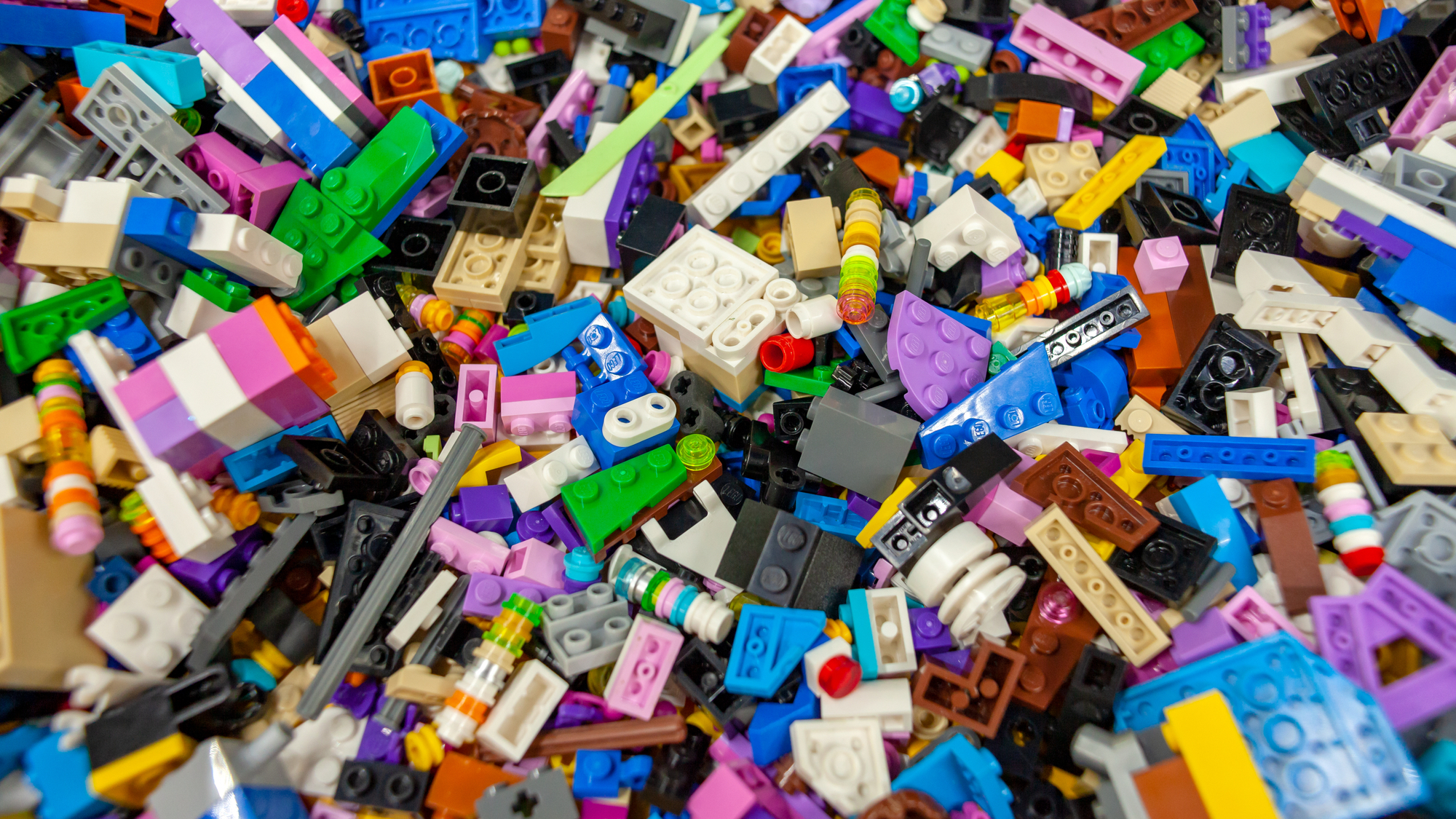

Lego is abandoning an attempt to make its colorful, iconic building pieces from recycled plastic bottles just two years after first announcing one of the central facets of its ongoing sustainability push. Despite the setback, the Denmark-based company reiterated its commitment to reduce its overall environmental impact, and per the Associated Press, still aims to make Legos from sustainable materials by 2032.
Speaking with CNN on Monday, a Lego spokesperson claimed the company’s extensive testing had revealed that replacement requires additional production steps and investment into new equipment would actually produce more pollution than Lego’s current operations. The PET alternative also reportedly proved not as durable or safe as existing acrylonitrile butadiene styrene (ABS) blocks, and didn’t properly match Lego blocks’ trademark “clutch power.”
[Related: Super Glue could make it easier to recycle plastic.]
The popular toymaker first announced a new block prototype based on a recycled plastic bottle compound called polyethylene terephthalate (PET) in 2021—part of a project to transition away from oil-based plastics which began in 2018. Even in the prototype’s reveal, however, the company cautioned it would be “some time” before builders could expect a more eco-friendly recycled brick to appear on store shelves. The formula reportedly required further testing and development before moving into a “pilot production phase” expected to take “at least a year.”
Unfortunately, this pilot phase appears to not only take longer than expected, but ultimately fail to produce a viable replacement for the oil-based bricks. According to AP News, Lego states it is “currently testing and developing Lego bricks made from a range of alternative sustainable materials, including other recycled plastics and plastics made from alternative sources such as e-methanol.” Made from hydrogen and captured carbon dioxide, e-methanol (aka green methanol) employs renewable energy to split water molecules during its energy production.
“We believe that in the long-term this will encourage increased production of more sustainable raw materials, such as recycled oils, and help support our transition to sustainable materials,” the company said via AP.
The backtracking comes barely a week after Lego CEO Niels B. Christiansen issued a statement ahead of the UN General Assembly reaffirming their company’s commitment to climate sustainability. The pledge included an aim to make the company carbon neutral by 2050 alongside a $1.4 billion investment in “sustainability-related activities.” The funding is reportedly earmarked for projects such as carbon neutral buildings, increasing renewable energy production and capacity across Lego stores, offices, and factories, as well as partnering with suppliers to “collectively reduce environmental impact.”
But while Lego’s PET project appears to have hit a significant hurdle, the company confirmed that a sustainable, sugarcane-derived version of polyethylene called bio-polypropylene made from sugarcane will still be used for certain parts of Lego sets, mainly accessory items such as trees and leaves.
